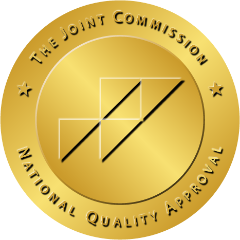Brighter Start Health is the top addiction treatment center for drug and alcohol recovery in Wilmington, NC. Outpatient programs and PHP are available.


We want all of our clients and visitors to feel safe and comfortable when setting foot in our facility. Brighter Start Health, in Wilmington, NC, was built with the highest principles of therapeutic and medical care in mind, and the results are truly amazing. Please visit us if you need help with drug or alcohol rehab. Intensive Outpatient Programs are available.
Brighter Start Health is a drug and alcohol rehab center located in the beautiful city of Wilmington, NC. We address the effects of drug and alcohol abuse on the individual and their families. With a continuum of addiction treatment options, including Intensive Outpatient Programs, we have become the premier place to receive comprehensive care for drug and alcohol addiction. We at Brighter Start Health offer cognitive-based therapy and utilize trauma-informed care. Our Wilmington, NC addiction treatment staff of dedicated licensed therapists and certified clinicians is here to provide you with the personalized care you deserve in a positive and healing environment. So, if you're looking for drug rehab or alcohol addiction treatment in Wilmington or any other kind of substance abuse treatment program, call us. We will support you!
At Brighter Start Health, we’re dedicated to helping you get your life back. Our Wilmington, NC substance abuse treatment team of dedicated staff and clinicians are with you each step of the way. No matter what stage of substance use you’re experiencing, we can help.
Our mission is to develop a treatment plan that fits your individual needs. No matter your age, where you come from, or what you’ve done, we can develop a plan for you. We understand that every individual has specific needs and will experience recovery in different ways. At Brighter Start Health, you’ll receive the tools you need to forge ahead in your path to recovery.

All clients at Brighter Start Health, Wilmington, NC will have a treatment plan that meets their specific needs. We’ll develop a plan together based upon the physical, emotional, and spiritual needs of the patient. We have Intensive Outpatient Programs to accommodate your lifestyle.
An individualized treatment plan is like a personalized roadmap for recovery. When someone begins treatment at Brighter Start Health, we take the time to get to know them—not just their addiction, but their whole story. We look at what substances they’ve been using, for how long, and how it’s impacted their life. We also consider things like mental health conditions, medical issues, trauma, family relationships, and lifestyle factors. This helps us understand the root causes of the addiction and how best to support long-term recovery.
After this in-depth assessment, our professional team works together with the client to develop a plan that lays out their recovery goals and the steps we’ll take to help them get there. This isn’t a “one-size-fits-all” approach. Some people may need more time in therapy. Others might benefit from medication to help ease withdrawal symptoms or reduce cravings. Some may want to include faith or spirituality in their recovery process. Whatever the case, we listen and adjust the plan to meet each person where they are.
A personalized treatment plan at Brighter Start Health may include several types of support and services. One of the most important is therapy. We offer both one-on-one counseling and group therapy sessions. These give clients a safe space to talk about their experiences, learn healthy coping skills, and build a support system with others who understand what they’re going through. We use proven therapeutic approaches like cognitive behavioral therapy (CBT), which helps people change negative thought patterns and behaviors that contribute to addiction.
If someone is dealing with both addiction and a mental health condition like depression, anxiety, or PTSD, we offer integrated treatment for what’s called a co-occurring disorder. This means we treat both issues at the same time, which leads to better outcomes and a stronger foundation for recovery.
We also understand that healing from addiction isn’t just about stopping substance use—it’s about improving the whole person’s life. That’s why we include things like life skills training, relapse prevention education, and support in rebuilding relationships with family and friends. We want our clients to leave treatment feeling more confident, more connected, and more in control of their future.
As the recovery journey progresses, the treatment plan can change too. We regularly check in with each client to see what’s working and what needs to be adjusted. Recovery is not a straight line, and it’s normal for people to face setbacks. What matters is that we keep supporting them, every step of the way.
At Brighter Start Health in Wilmington, our goal is to offer more than just drug or alcohol addiction treatment. We aim to provide hope, healing, and a fresh start. Our individualized treatment plans give each person the best chance at long-term success because they’re built around what really matters—the person.
The Partial Hospitalization Program is available to clients to address the changes happening during recovery. This program has more daily structure than our Intensive Outpatient Program. It’s particularly designed to help patients build a firm foundation in their recovery journey.
This intensive program provides a full day of therapeutic treatment—typically five to six hours per day, five days a week—while allowing clients to return home in the evenings. It’s a great fit for those who need consistent support during early recovery but don’t require 24-hour residential care. PHP is especially helpful during the critical period when clients are facing new challenges, such as returning to work, rebuilding relationships, or navigating life without substance use.
At Brighter Start Health in Wilmington, we create a personalized treatment plan for each PHP client. Our program includes a mix of evidence-based therapies such as cognitive behavioral therapy (CBT), trauma-informed counseling, individual and group sessions, medication-assisted treatment (if needed), relapse prevention education, and holistic wellness support. These services are all aimed at helping clients build healthy coping skills, increase emotional resilience, and maintain their sobriety in real-world settings.
We know that recovery is not just about stopping drug or alcohol use—it’s about creating a new way of life. Our Partial Hospitalization Program offers structure, accountability, and therapeutic guidance, all within a supportive and respectful environment. Clients also have access to family therapy and case management services, helping them rebuild connections and prepare for the next phase of recovery.
If you have a family member or know someone who is in need of a structured addiction treatment program in Wilmington, our Partial Hospitalization Program may be right for them. Brighter Start Health is here to help you move forward with confidence, stability, and support. Contact us today to learn more about how PHP can help you stay on track and succeed in your recovery journey.
Brighter Start Health's Intensive Outpatient Program is for clients who need an advocate for continued health. Like our PHP program, this program is designed to give clients the freedom to live in their homes and continue working, while getting the help they deserve. Brighter Start Health provides a life-long support system with our Intensive Outpatient Program.
This level of care is ideal for clients who have completed detox or inpatient rehab, or for those whose addiction does not require 24-hour supervision. Our IOP allows you to live at home, remain active in your daily routine, and still receive the focused care needed to continue building a strong foundation in recovery.
Brighter Start Health’s IOP includes multiple therapy sessions per week, typically lasting three hours per day, three to five days a week. Sessions may be scheduled during the day or evening to accommodate work and family obligations. This structured, yet flexible schedule supports long-term recovery while promoting independence and stability.
Each client receives a personalized treatment plan built around their individual needs and goals. Our program includes a combination of individual counseling, group therapy, relapse prevention training, and education about substance use and mental health. We use evidence-based therapies such as cognitive behavioral therapy (CBT) and dialectical behavior therapy (DBT) to help clients learn healthier ways to manage stress, emotions, and daily challenges.
Many clients in our Intensive Outpatient Program also benefit from dual diagnosis support, which treats both addiction and co-occurring mental health conditions such as anxiety, depression, or trauma. Our team works together to ensure each client receives comprehensive, integrated care that supports lasting recovery.
One of the greatest strengths of Brighter Start Health’s IOP is the lifelong support network we help our clients build. Recovery doesn’t end when the sessions do—it’s a journey. Through peer connections, ongoing counseling options, and a caring treatment team, we stay connected to our clients every step of the way.
If you or someone you care about is looking for an intensive outpatient program in Wilmington, NC that supports both recovery and everyday life, Brighter Start Health is here to help. Contact us today to learn more about how we can support you or your loved one on the path to lasting wellness.
We understand that maintaining a normal life is important to our clients. Our Outpatient Program allows clients to continue living their daily lives, while focusing on their treatment. Brighter Start Health provides clients with individual, group, and family therapy to help them reach their goals. So, whether you are seeking drug rehab or alcohol addiction treatment in Wlimington, we've got your back!
At Brighter Start Health , we don’t stop supporting our clients when they’ve completed our program. We offer local Sober Living Recommendations to complement our treatment options. We’re dedicated to providing our clients with the resources they need to continue treatment and obtain their goals.


